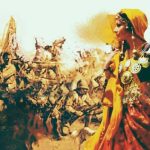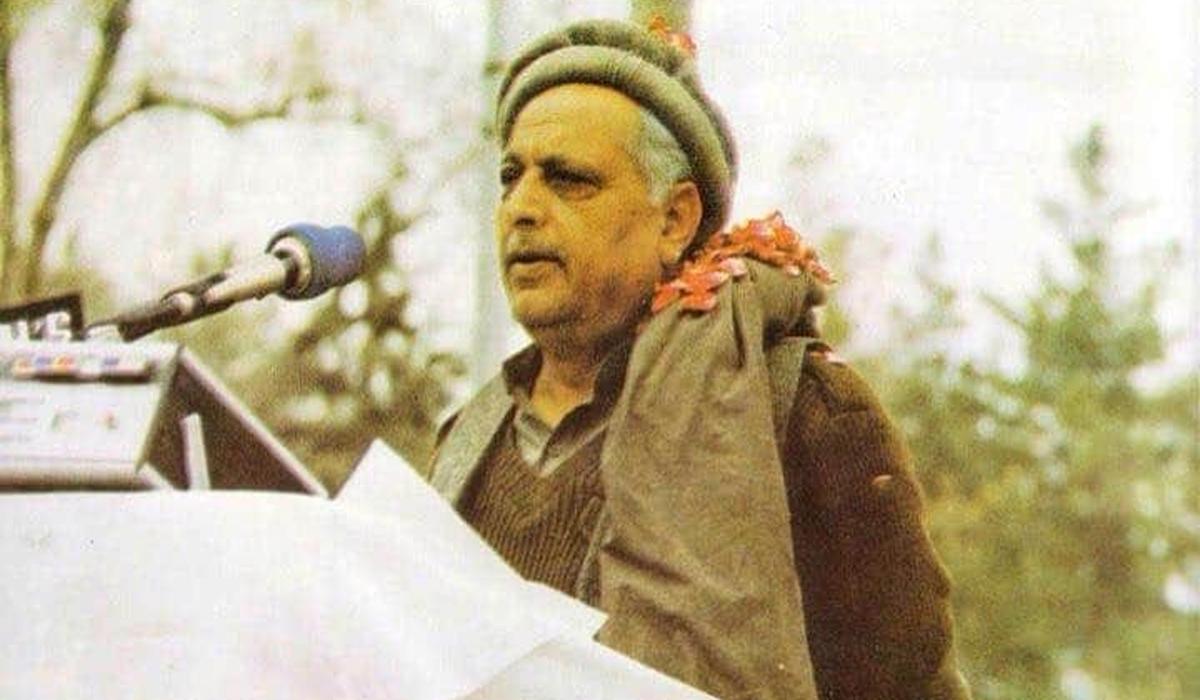Khyber Pakhtunkhwa’s history is full of stories of bravery and love for the homeland. Many heroes were born on this soil who made history struggling to protect the values of this land.
Sher Ali Bacha is one such hero who was a great poet, writer, intellectual and a nationalist politician who believed in principles and Pashtun values. He was a great intellectual with a great vision and a liking for philosophy. His work had not only helped people in recent years, but it will also be a guide for future generations.
Sher Ali Bacha was born in Hoti Mardan in 1932. His family is the descendant of Syed Ali Termizi. His uncle, Hannan Bacha, was practically working for Khudayee Khidmatgar Movement of Independence and was the leader of Mardan City. Bacha was mainly inspired by his mother who used to read him Pukhtun Magazine and other Pashto story books People called him Bachajee to pay respect.
During his young age, he was actively involved in literary activities and was the secretary of Pushto Adabi Tolana, Mardan College. Bacha jee became a member of the Provincial Council and the District General Secretary of National Awami Party (NAP). However later, he was expelled from NAP in 1967 over the reservations of fellow party members after he opened Kisan Daftar with the help of Afzal Bangash. Kisan Daftar was an organization which workedfor the protection of peasants.
They soon joined their acts together and formed Mazdoor Kissan party (labour and peasants party). This party struggled for the uplifting of the downtrodden. Still, it was never in the good books of the feudalist and the government institutions. Because of the nationalistic views of Bachajee, the party was later on called Pukhtonkhwa Mazdoor Kissan Party.
In 1986 there was an agreement between the Awami National Party Pukhtonkhwa and Pukhtonkhwa Mazdoor Kissan Party. The settlement resulted in the formation of the Pakhtunkhwa Milli Awami Party (PkMAP) in 1989.
Bacha jee started his political career as a leftist. However, after observing the rot and double standards of the flag-bearers of ‘class struggle’ in the land of pure closely, he realized the importance of the National question in this state. He remained a vocal voice of Pakhtun nationalism. He held office as the General Secretary of PkMAP under the leadership of Mahmood Khan Achakzai and following the philosophy of Khan Shaheed Abdul Samad Khan Achakzai.
A renowned poet and author
Besides being a notable politician, Sher Ali Bacha was also a renowned poet and a distinguished author. From being an editor of Pashto Magazine “Adal” during his student life to publishing books of high standards on class and national struggle, Bacha Jee was one of the top Pashtun writers of his time. His pen name was “Anwar”. Bal Mashalona, Kisan Dawtar and Pasoon are some of the books he authored.
He wrote meaningful poetry and prose which mainly concentrate around the two main aims of his life: the first being his fight against the ugly social class system in the country and the later being his struggle to uplift Pashtuns as a nation. His memorable poem “Khog Watan” (My Dear Homeland) is a brilliant example of putting these two ideas in one poem.
The great Pashtun writer Qalandar Momand wrote in the memory of Sher Ali Bacha, “The life of Sher Ali Bacha has two sides. While many people know him as a nationalist politician, not many are aware of his literary achievements. The time has come that we collect all his work, put it forward to the readers and give him the high status that he deserves in the field of literature.”
When back in Mardan, he with the help of other friends reinitiated the Pukhto Adabi Jirga and used his own office as a base for the Jirga.. The Adabi jirga became very popular across the province, and literary activities reached its peak. This not only attracted local talent but writers like Ajmal Khattak, Qalandar Momand, Hamza Shinwari, Ayub Sabir and other poets from across Pukhtunkhwa attended the sessions.
To his liking, he organised a memorable Mushaira (poetry session) instead of music on the eve of his wedding. This was the first of its kind and is still remembered in good words by those who attended it.
Later on, during his political life, he produced pamphlets, leaflets, posters and brochures in the form of “Mazdoor Kissan Zinda Baad”, “Sanobar” and numerous others.
He also has the honour of writing the constitution and manifesto of Pakhtunkhwa Milli Awami Party.
Struggles and sufferings in his life
Ziaul Haq’s regime was the worst period for the human rights activists and nationalist politicians in the country’s history.
The police raided his house one day and sealed his house for 5 years. Bachajee went into hiding and eventually exiled to Afghanistan.
Bacha jee spent several precious years of his remarkable life behind bars but these arbitrary tactics failed to deter him from his cause — he was a man of sheer will and unmatchable qualities.
During General Yahya Khan’s Martial law, Bachajee was arrested and was under severe surveillance in Dera Ismail Khan Jail. He remained in jail for more than two years and was released after the infamous East Pakistan crisis of 1971.
Between 1979 and 1981, he was in exile following the arrest warrants issued by General Ziaul Haq and was arrested on 2nd July 1981. Once again, Bacha jee was put in behind bars in Bala Hisar Fort Peshawar. He was kept there for five months during which no one was allowed to pay him a visit. He spent the month of Ramadan and Eid while in jail.
Afterwards, he was transferred to Haripur jail where he spent 5 years of his life and finally released in 1985. During his life in jail, he used to read books to his fellow prisoners and encouraged them to work for the uplift of the poor once they are released from the prison.
Final days of his life
Bacha liked to visit small villages across the province. There was almost no village left where he didn’t go to spread political awareness amongst the villagers.
In July 1998, he was admitted to hospital with a medical condition called Guillain-Barre syndrome. Sadly this great Pashtun hero died at 6.05 pm on 25th July 1998.
He is buried in his ancestral graveyard at Bibi Abai, Hoti Mardan.
Mashar Mahmood Khan Achakzai writes about Bacha jee: “When he saw his people being oppressed at the hands of others and realized that people distort scientific ideas and throw dust in our eyes saying we all are but one nation, Bacha Jee confronted them very bravely. He was a man of far-sighted knowledge who warned Pashtuns against any possible assault on them. Bacha jee was one of the several people who came to this conclusion that a nationalist party based on our motherland with ideas of nationalism can guard Pashtuns and Pashtunkhowa”.
It’s humanly impossible to describe Sher Ali Bacha in a single article, but I, with very limited understanding, jotted a few lines about him.
Hope I won’t be judged for this.


